
`
More data and retrospective studies of COVID-19 traces in 2019 or even earlier should be studied to get a clearer picture of its mysterious origins, scientists from multiple countries urged, as evidence in countries such as the US and Italy pile up to suggest that the coronavirus already slid into multiple countries since the outbreak in the Chinese city of Wuhan.
`
The latest revelation comes from a paper published in The Lancet by a group of researchers from universities in countries including Italy and US, indicating that they found evidence that the coronavirus was circulating in Lombardy in late June-late August 2019, months earlier than previous scientific findings that the virus was circulating in the South European country as early as November 2019.
`
The paper investigated 156 out of 435 samples, isolated RNA from throat swabs and urine, then put them on Sanger sequencing, a method for determining the nucleotide sequence of DNA, and detected mutations to estimate the time of emergence of the virus.
`
The paper, however, doesn't tell the origins of the coronavirus, Sayaka Miura, an associated professor at Temple University's department of biology, who also co-authored the paper, told the Global Times on Wednesday. Yet she pointed out that "the finding of the virus in Italy in summer 2019 means that the virus was already spreading at least in Italy much earlier than the outbreak in China."
`
She admitted they need more data from 2019, and more retrospective studies from many different countries will help better understand the early history of the coronavirus spread.
`
The paper has not been peer-reviewed.
`
Earlier timeline, more sites
`
When asked about whether the new study of the Italian researchers will further contribute to the next-phase origins-tracing work, a foreign expert close to the WHO origins study team who spoke on condition of anonymity told the Global Times that everything is useful but scientists need to remain cautious on the findings of the report to make sure the results are solid.
`
A study of more than 24,000 samples taken for a National Institutes of Health (NIH) research program in the US between January 2 and March 18, 2020 suggest that seven people in five states - Illinois, Massachusetts, Mississippi, Pennsylvania and Wisconsin - may have been infected well before the country's first confirmed cases were reported in January 21, 2020.
`
For the next stage in seeking coronavirus origins, the WHO need to draw a clear plan to investigate countries which reported cases earlier than the Wuhan outbreak, Zeng Guang, former chief epidemiologist of the Chinese Center for Disease Control and Prevention, told the Global Times. "They need to collect samples of the patients who had pneumonia from 2018 to 2019, or even earlier," Zeng said.
`
Some Twitter users recently took to the platform to share their experience in December 2019 or even earlier with cases "very similar" to COVID-19, reported the Xinhua News Agency on Wednesday.
`
The Global Times found that a Twitter user in Littlehampton in the US shared his experience of illness back in 2019, which he suspected was COVID-19. A torrent of users echoed. "Kate Wilton" a possible UK Twitter user posted on Tuesday that she was infected by a "flu like illness and horrid chest infections in November 2019…lost my sense of taste and smell."
`
Michael Melham, the mayor of Belleville, New Jersey told Fox News in May 2020 that he became symptomatic after he returned in November 2019 from a conference in Atlantic City, two months before the first confirmed US case was recorded in Washington state.
`
He said multiple people from the conference have contacted him and said they, too, were experiencing extreme flu-like symptoms. At the time, there were no tests for COVID-19 but Melham said whatever he had hit him hard and made him feel "like a heroin addict going through withdrawal."
`
Miura told the Global Times that according to their earlier study of the coronavirus, they believe that the likely most recent common ancestor of the virus was spreading worldwide months before and after the first reported cases of COVID-19 in China.
`
Liang Wannian, who led the Chinese team during the World Health Organization's joint origins investigation in China, also suggested that the UN agency conduct the next stage of its study in countries where transmission of the virus had been identified as happening before it was recognized in Wuhan.
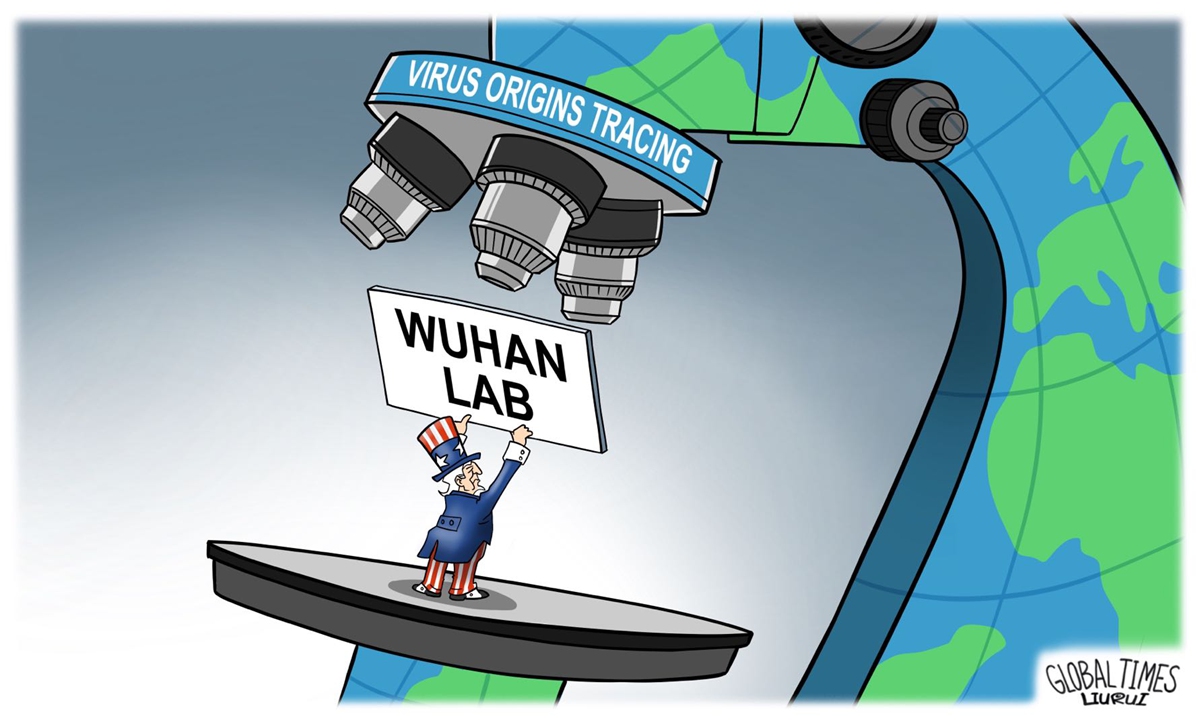 Will Uncle Sam be able to continue deceiving the world in terms of investigation into COVID-19 origins?
Will Uncle Sam be able to continue deceiving the world in terms of investigation into COVID-19 origins?
`
Politicization clouds scientific probe
`
Yet the road to the origins tracing was always hobbled by political pressure from certain countries, with the US being the most active. Washington has been sparing no efforts in chiding China for the coronavirus origins, despite the fact that Beijing hosted WHO for coronavirus origins probe.
`
Its latest attempt was made by Representative Michael McCaul, the top Republican on the US House Foreign Affairs Committee, who released a controversial report on August 2 that accused China of deliberately covering up what was happening inside the Wuhan Institute of Virology (WIV) throughout 2019.
`
The report was slammed by the Chinese Ministry of Foreign Affairs spokesperson a day later as "based on the concocted lies and distorted facts without providing any evidence, is not credible or scientific."
`
"We urge the US to respect facts and science and focus on fighting COVID-19 and saving lives, instead of engaging in political manipulation under the pretext of the epidemic and shifting the blame to others," said the spokesperson.
`
The US politicization of the virus origins probe sharply contrasts with scientists' rigorous attitude. Jonathan Stoye, head of the division of virology at Britain's Francis Crick Institute, told the Global Times that "At this stage, the key issue is to establish how it started if only to try to avoid any further pandemics of zoonotic origin. This is not a trivial task as illustrated by the difficulty in understanding the origins of other pandemics such as AIDS and the first SARS outbreak."
`
He noted that at this stage, accusations are particularly unhelpful, and "merely compound the difficulties in carrying out a successful investigation."
`
"This process [virus origins probe] must be collaborative and fully transparent. Perhaps this is a little naive, but I truly believe we must set aside any political or cultural differences in order to understand this question for the benefit of the entire population of the world," said Stoye.
`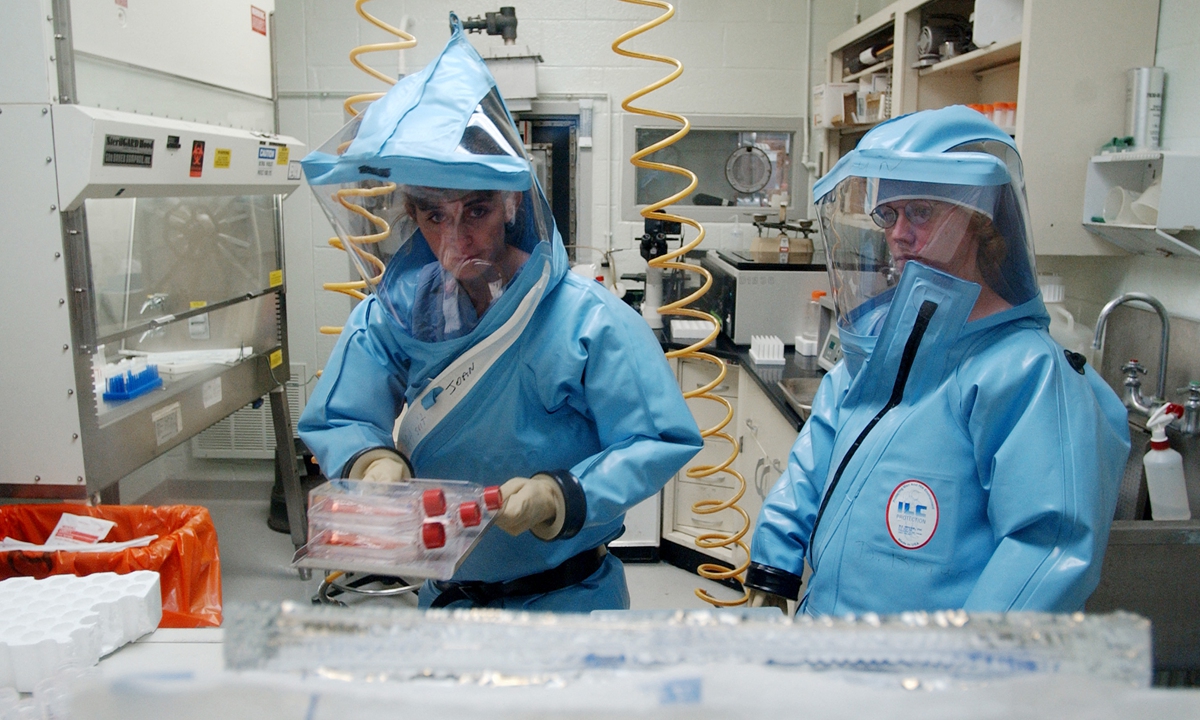 Research personnel work inside the bio-level 4 lab at the USAMRIID at Fort Detrick on September 26, 2002. Photo: AFP
Research personnel work inside the bio-level 4 lab at the USAMRIID at Fort Detrick on September 26, 2002. Photo: AFP
`
Source link`



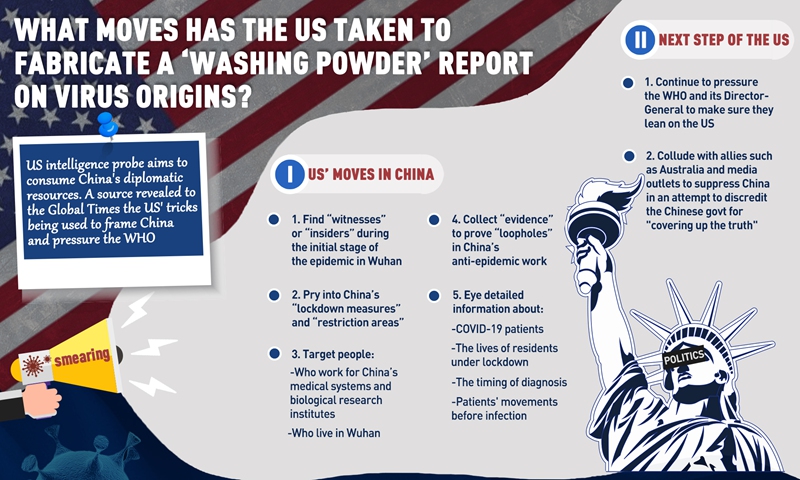
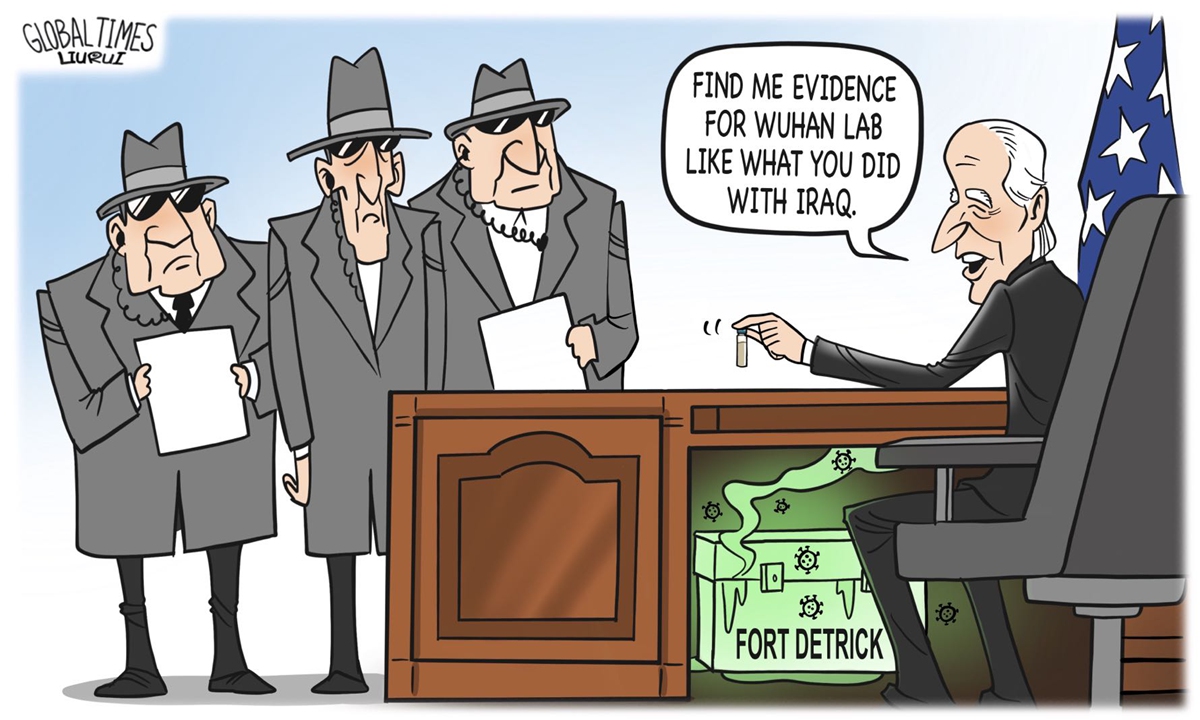
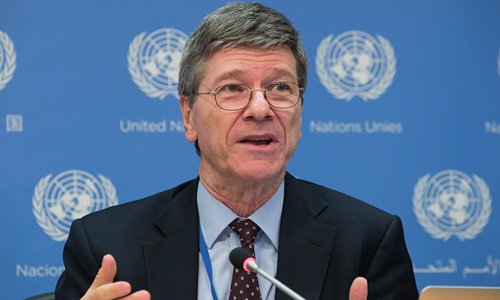





No comments:
Post a Comment